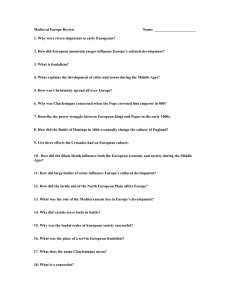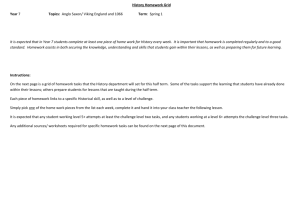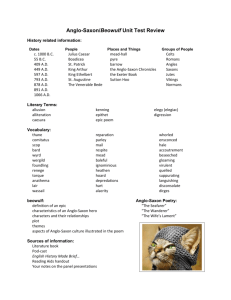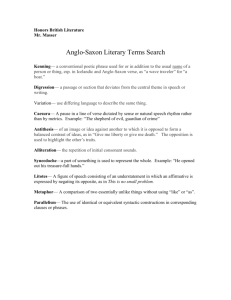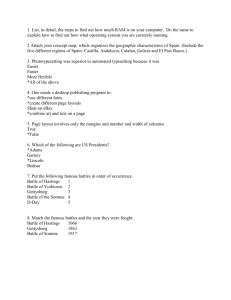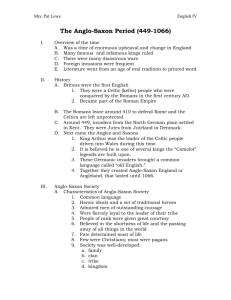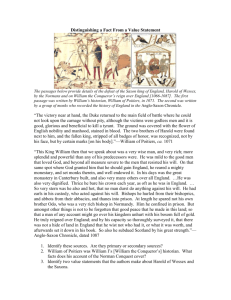William the Conqueror transcript
advertisement
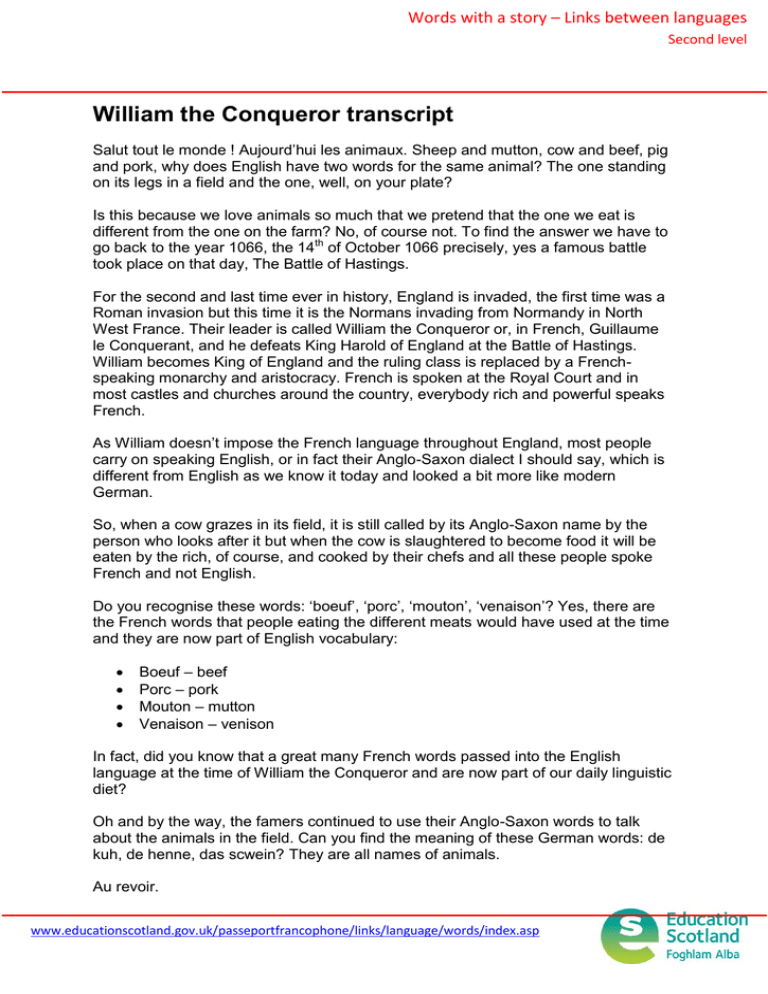
Words with a story – Links between languages Second level William the Conqueror transcript Salut tout le monde ! Aujourd’hui les animaux. Sheep and mutton, cow and beef, pig and pork, why does English have two words for the same animal? The one standing on its legs in a field and the one, well, on your plate? Is this because we love animals so much that we pretend that the one we eat is different from the one on the farm? No, of course not. To find the answer we have to go back to the year 1066, the 14th of October 1066 precisely, yes a famous battle took place on that day, The Battle of Hastings. For the second and last time ever in history, England is invaded, the first time was a Roman invasion but this time it is the Normans invading from Normandy in North West France. Their leader is called William the Conqueror or, in French, Guillaume le Conquerant, and he defeats King Harold of England at the Battle of Hastings. William becomes King of England and the ruling class is replaced by a Frenchspeaking monarchy and aristocracy. French is spoken at the Royal Court and in most castles and churches around the country, everybody rich and powerful speaks French. As William doesn’t impose the French language throughout England, most people carry on speaking English, or in fact their Anglo-Saxon dialect I should say, which is different from English as we know it today and looked a bit more like modern German. So, when a cow grazes in its field, it is still called by its Anglo-Saxon name by the person who looks after it but when the cow is slaughtered to become food it will be eaten by the rich, of course, and cooked by their chefs and all these people spoke French and not English. Do you recognise these words: ‘boeuf’, ‘porc’, ‘mouton’, ‘venaison’? Yes, there are the French words that people eating the different meats would have used at the time and they are now part of English vocabulary: Boeuf – beef Porc – pork Mouton – mutton Venaison – venison In fact, did you know that a great many French words passed into the English language at the time of William the Conqueror and are now part of our daily linguistic diet? Oh and by the way, the famers continued to use their Anglo-Saxon words to talk about the animals in the field. Can you find the meaning of these German words: de kuh, de henne, das scwein? They are all names of animals. Au revoir. www.educationscotland.gov.uk/passeportfrancophone/links/language/words/index.asp
